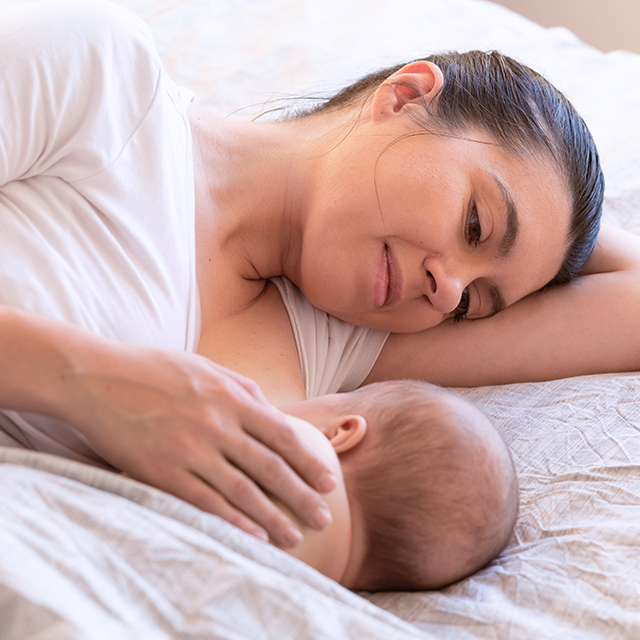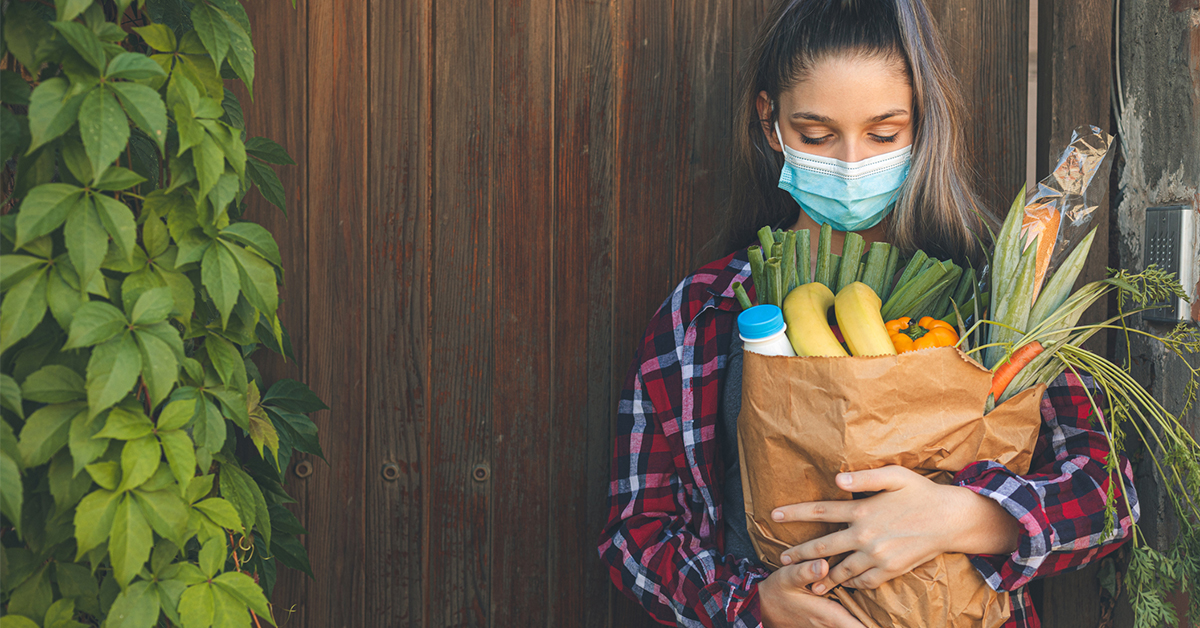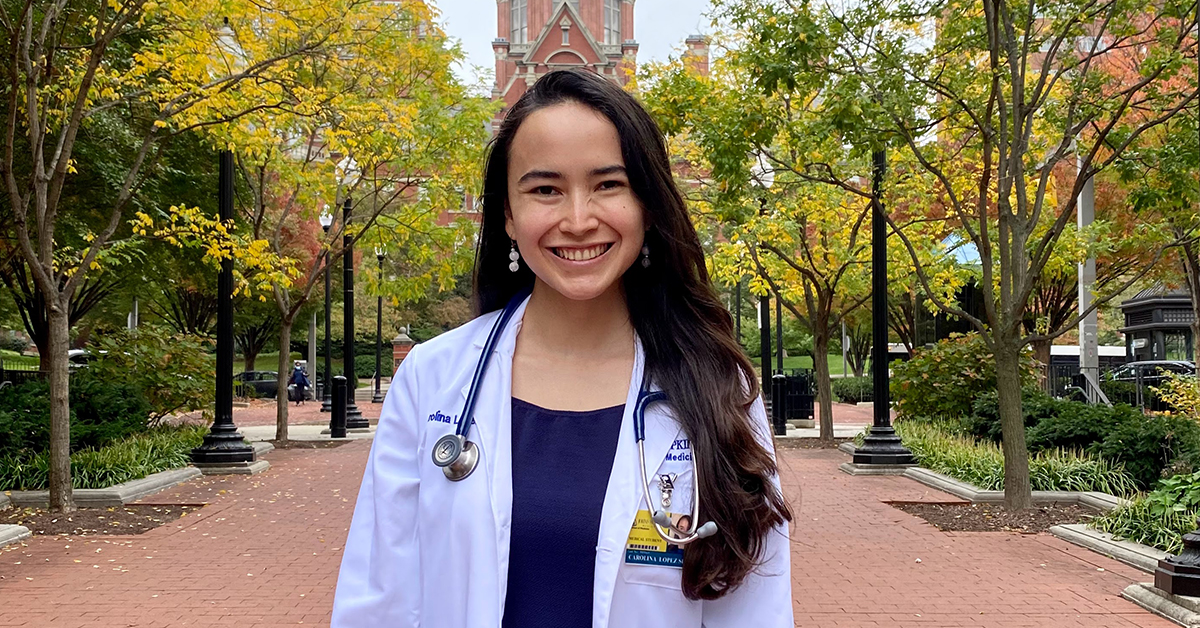Before Xiomara joined the Johns Hopkins Medicine autism support group, she says she was afraid to admit that her 5-year-old was on the autism spectrum.
“Life prior to the group was a little bit lonely,” says Xiomara. “I did not know many mothers with children with autism, and I felt like I was the only one who had a child with this condition.”
The autism support group has about 30 Latina members. They meet once a month on Zoom and sometimes have guest speakers. The group is for parents to share and support one another. It is all run in Spanish.
Children are typically diagnosed with autism spectrum disorder (ASD) between 2 and 5 years of age, although this can vary. Diagnosis is made by a multidisciplinary team including a developmental pediatrician, a speech-language therapist, an occupational therapist and other specialists. It involves observation and testing, as autism symptoms vary significantly and can change over time.
Everyday struggles for children with autism include difficulty communicating, navigating social situations and understanding other’s emotions, as well as over or under sensitivity to touch, light, taste, smell or sound. They can also experience learning delays in areas such as toilet training or reading, form attachments to unusual toys/interests (for example, one specific toy or a kitchen utensil) and have trouble with transitions, such as a family’s house for the holidays or a car/plane trip. Children may also have issues with falling asleep and staying asleep, develop repetitive movements or behaviors and have impulse control.
“It varies, and these are mostly all behavioral. Even though ASD is a medical diagnosis, working on the behaviors and doing the therapy doesn’t necessarily occur in the doctor’s office,” says Tania Maria Caballero, M.D., M.H.S., a pediatrician at the Children’s Medical Practice at Johns Hopkins Bayview Medical Center and a faculty member of Johns Hopkins Centro SOL.
Caballero says sharing community and school resources can be helpful for families who otherwise may not know where to start in accessing services, particularly non-English speakers.
“It has helped me normalize my son’s condition. I no longer see the situation as chaotic or shameful because there are other mothers in the group who have overcome more than me,” says Xiomara. “Life is easier, and the group helped me to speak to people outside the group more comfortably about my child’s condition.”
Caballero started the group with now retired Johns Hopkins social worker Flor Giusti. They put together a What’s App group in 2019 after Caballero informally connected one mother with a newly diagnosed child to another mother with a child who had an autism diagnosis for several years.
“I realized that women needed peer support as they went through stages of understanding this new diagnosis from the lens of Latino culture and Spanish language,” Caballero says. “Like other kids with special needs who have non-English speaking parents, the work is doubly exhausting as they have to navigate resources, therapies and school meetings all in English.”
Caballero hopes the ASD group helps reduce the disparities in information and resources for Spanish-speaking families who have children with autism.
“Many families who speak languages other than English feel invisible in the medical system,” Caballero says. “Especially for a child with medical complexity who interacts frequently with the medical system, caregivers can still feel a bit lost and lonely. These parents and caregivers actually have such a huge amount of wisdom and want to share with each other.”
Caballero says the group talks about behavior management, navigating a school learning plan and advocating for their kids.
“We talk about simple things like who is a good dentist for kids with an autism diagnosis,” Caballero says. “Someone may share a good experience at the dentist or share struggles about their nonverbal child’s safety. Sometimes there’s crying, but mostly there is a lot of listening, reinforcement, questions and advice.”
Caballero says she’s found that when people feel comfortable and realize that they are not alone, they feel empowered and reenergized.
“They are getting information and access. They’re able to connect with others, and that’s a longer-term benefit for their child’s health,” Caballero says. “It’s not a treatment but a supportive safety net that elevates the family and community life for Latino families with children on the autism spectrum.”
For group member Nasly, who has a 4-year-old daughter on the autism spectrum, it was initially strange to talk to people she didn’t know. But, after some time, she grew more comfortable as she heard about other mothers’ experiences with their children.
“I learned that everyone has a different situation, but in the end, we almost always come to the same place,” Nasly says. “With our little angels, you need help from parents and many other people. Not everyone understands children with special needs, but in this group, we all understand because of our experiences.”
Nasly says the group has helped her feel more relaxed and confident with her daughter.
“If I have a concern about something, I just send a message to the group chat and soon receive suggestions from other mothers,” Nasly says. “It is nice to feel emotionally well, because our little angels always need much of our energy, our help and our support.”
Group member Adelina, who has a 15-year-old child on the autism spectrum, says she loves that she can share her experience with the rest of the mothers.
“When we share experiences so other mothers can use them, we help reduce the weight of our heavy load,” says Adelina. “By putting the advice that we share into practice, we can continue to find and participate in our child’s activities with love.”



